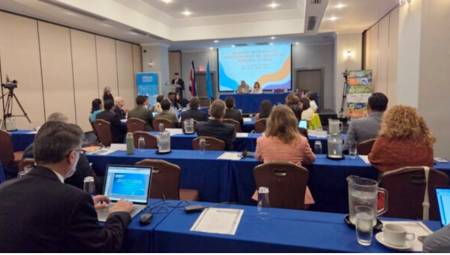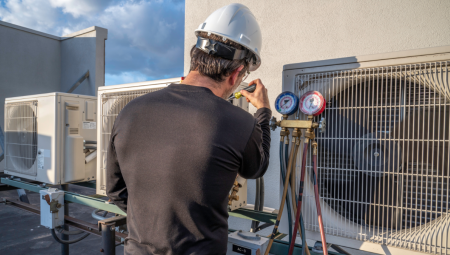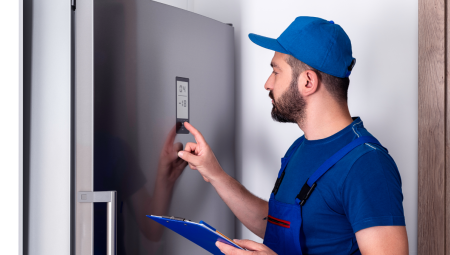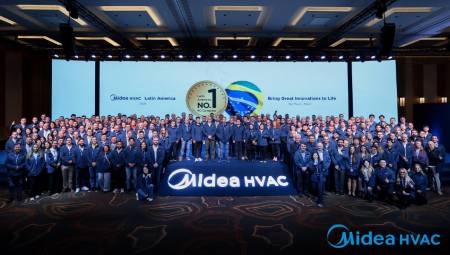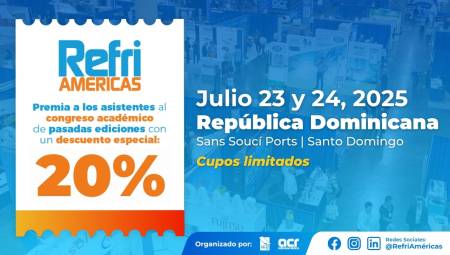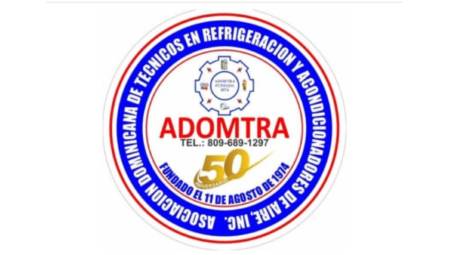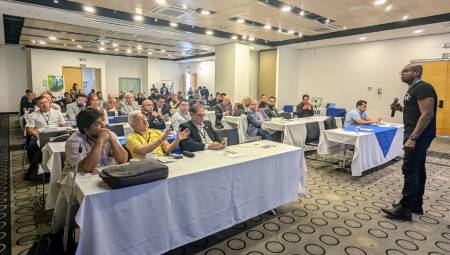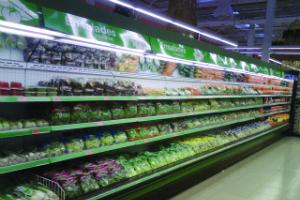 Experts from the refrigeration sector made an analysis of the last ten years of this industry, in which a great technological advance has been noticed but also aspects that need to be improved are evident.
by Duván Chaverra Agudelo
Experts from the refrigeration sector made an analysis of the last ten years of this industry, in which a great technological advance has been noticed but also aspects that need to be improved are evident.
by Duván Chaverra Agudelo
On the occasion of the 10 years of RefriAméricas, the congress will hold a panel (See Academic Program) with different refrigeration experts who will talk about the evolution that the industry has had in the last decade and what are the most outstanding events.
For that reason, and as a mouth open to this interesting presentation, ACR LATINOAMÉRICA spoke with experts and some members of this panel to know their impressions. The economic crisis, environmental regulations, new refrigerants, the technological evolution of equipment, among other topics will be expanded below.
For example, engineer Gildardo Yáñez, technical and IT manager at Grupo Refrigerantes de México and member of the Board of Directors of Ashare Mexico Chapter, highlighted the successful step that is being taken towards energy efficiency and the environment.
"During the last ten years we have been evolving; firstly towards refrigerant gases that do not affect the ozone layer, since all Latin countries eliminated the use of CFCs. At the moment we are in search of energy-efficient technologies, which do not cause the emission of greenhouse gases into the atmosphere. The result is the authorization of the use of the HFO molecule that has a very short atmospheric life. Another technology is the use of Variable Refrigerant Volume systems within environmentally friendly or high-performance buildings," said the expert.
César Alejandro Isaza, coordinator of the Center for Research, Development and Quality in Refrigeration and Air Conditioning (Circli) of the Pontifical Bolivarian University of Colombia, has a similar opinion, who highlights social responsibility and corporate image as fundamental and influential elements in the evolution of the industry.
"Awareness of energy efficiency and environmental impact has increased. The refrigeration industry increasingly invests in equipment and systems that consume less energy, considering that cooling systems are highly intensive in energy consumption and this significantly affects their productivity, these involve control technology, variable flow, new refrigerants, high performance heat exchangers, among others. Meanwhile, social responsibility and corporate image make many companies make decisions regarding the environmental impact that their processes generate, considering acquiring or using equipment and materials that are environmentally friendly."
From the point of view of Rodnei Peres, foreign trade manager of Full Gauge Controls of Brazil, automation has also played an important role in the evolution of the refrigeration sector.
We see two major major changes in the last 10 years: facility automation and energy saving. The current existing energy capacity in Latin America does not sustain the industrial growth of countries looking for alternatives to reduce or delay the demand for electricity. The most correct and cheapest alternative is automation, where a reduction in electricity consumption of 30% is guaranteed."
Peres added that a prominent detail in the evolution of cooling is the digital instruments for energy saving: "They have important functions for that energy saving, such as lighting control and economic setpoint. Automation generates efficiency to the systems by controlling the number of items of certain equipment and the warning of open doors in cold rooms, to mention a few examples".
Giovanni Barletta, technical manager of the Andean and Caribbean region of Emerson Climate Technologies, commented on this same aspect: "In these ten years we have seen the arrival of new refrigerants, more electronic components in equipment and devices in compressors capable of monitoring, communication and diagnosis of failures. Improvement in the designs of the compressors and their parts aiming at efficiency and energy savings. Evolution of a totally revolutionary concept such as "Digital Compressors" that has dramatically changed the traditional concepts of modulation, have provided strategies with energy saving benefits, improved start and stop cycles of compressors, and in the operating costs and useful life of the system".
Environmental evolution
Emphasizing this aspect, the guests consider that the efforts are on the right track, however, much remains to be done to match, at least, other regions such as Europe.
Gildardo Yáñez highlights the issue of the lack of mandatory regulation as a stone in the shoe to continue advancing, despite the efforts made by associations and government entities. But he acknowledges that the process is on the right track.
"Refrigeration is an industry of slow technological advancement, it is not so easy to make changes and improvements and that they are reflected immediately. Only the refrigerant gases part requires several years of research to be able to reach a viable development. Therefore, the manufacturers of compressors, accessories, etc., have to start the development of these around the new gas. This is a feature of our industry, yet we are pointing and moving in the right direction: more efficient equipment that has the least environmental impact."
From the experience he has had in the Colombian market, César Isaza recognizes the work done by specialized entities that seek to raise awareness in the use of environmentally harmful refrigerants, but recognizes that the awareness process is slow.
"Colombia is a developing country, which according to the multilateral treaties signed, such as the Montreal one, has a longer period of time to make a total replacement of the refrigeration equipment that uses HCFCs, making many companies use it today despite the impacts on the destruction of the ozone layer and global warming. However, the Ministry of the Environment and the Ozone Technical Unit make a great effort to train, generate infrastructure and support the replacement of environmentally harmful refrigerants; considering that there is a lack of stricter regulations to control the use of these refrigerants and their potential emissions".
The obstacles to overcome
In this aspect, there are many barriers that the refrigeration sector must overcome. One of them focuses on making this industry a more specialized space. "We note that there is still the great challenge of the lack of specialized labor in the sector. This reality has been improving year after year, but it is still something that must be solved. That's why we invest so heavily in training throughout Latin America, focusing on the practical part, and that's helping a lot. We must also take into account the political/economic obstacles, which influence exports to countries such as Venezuela and Argentina," said Rodnei Peres.
Gildardo Yáñez has a similar opinion regarding the preparation of specialized technicians: "The biggest obstacle is the trained workforce of the technician, who is responsible for installing, operating and maintaining new technologies. The scarcity or lack of it is the main reason why different associations in the Latin region make great efforts to offer training to refrigeration technicians, since without them it is impossible to make the most modern technologies work as they were designed. In refrigeration we need a lot of labor input."
César Isaza highlights another obstacle, and that is that mechanisms must be created to reduce the current costs of refrigeration equipment, so that they are more affordable without compromising the growth of the market: "The technological dependence of developed countries makes the costs of equipment in Colombia much more expensive. This situation may be due to a lack of government incentives for the national industry, especially in research and development, in the lack of institutions or research centers for the development of refrigeration that accompany these processes and in the poor training of professionals in these areas. "
For his part, Giovanni Barletta hopes that as soon as possible governments "in each country will implement laws that improve efficiency, energy saving, and environmental protection. As well as the standardization of the competences and certifications of the technicians to intervene teams".
Where are we going?
We have already seen the different considerations regarding the past and present of the refrigeration industry. Now it is pertinent to know from the experts their futuristic vision of the sector, which points towards a much more efficient and innovative industry in terms of solutions, and responsible with the environment.
"Refrigeration is largely responsible for our civilization continuing to progress. Temperature control allows us to transport and preserve food and medicines. I think that equipment that can work with photocells or with small wind generators must appear that although they will not solve the energy problem completely, they will be of great help. However, our industry is starting a second evolution, we are moving towards equipment that does not affect the environment and that consumes little energy to produce cold, "said Gildardo Yáñez.
For his part, and from the concept of automation, Rodnei Peres, of Full Gauge Controls, stressed that "the high competitiveness "intramarket", added to the constant increases in electricity costs and the search for the preservation of the environment also generate growing opportunities for the sector. Currently, there is a union of efforts in the sense of disseminating information about the segment, which is very positive. Only through the exchange of information between manufacturers, designers, consultants, installers, users and customers will there be a greater awareness of the advantages of automation, with the consequent valorization of the market".
Finally, César Isaza deeply analyzes current trends, which foresee a clear picture of where the refrigeration industry is going. "In line with current trends, the use of CO2 as a refrigerant will increase. It will improve the implementation of alternative systems such as absorption cooling, which has the advantage of being able to use different energy sources such as solar or waste heat. An increase in the use of hydrocarbons as refrigerants in low-capacity residential and commercial systems can also be expected."
The professional and professor expert in the field concludes by highlighting that very soon the use of the different elements already available to improve the performance of refrigeration systems will grow. "Companies will look for equipment that consumes less energy and for this they must have elements that adapt to variations in load or operating conditions, such as variable speed compressors, electronic expansion valves, pumps and fans with flow variation, high performance heat exchangers, better insulation, system design with computational fluid simulation, intelligent control systems, among others".
In conclusion, we see how there are more positive aspects of this evolution than the negative ones. These suggest that refrigeration is on the right track, although there are certain aspects that must be corrected to evolve more quickly. At the moment, the outlook is optimistic.



